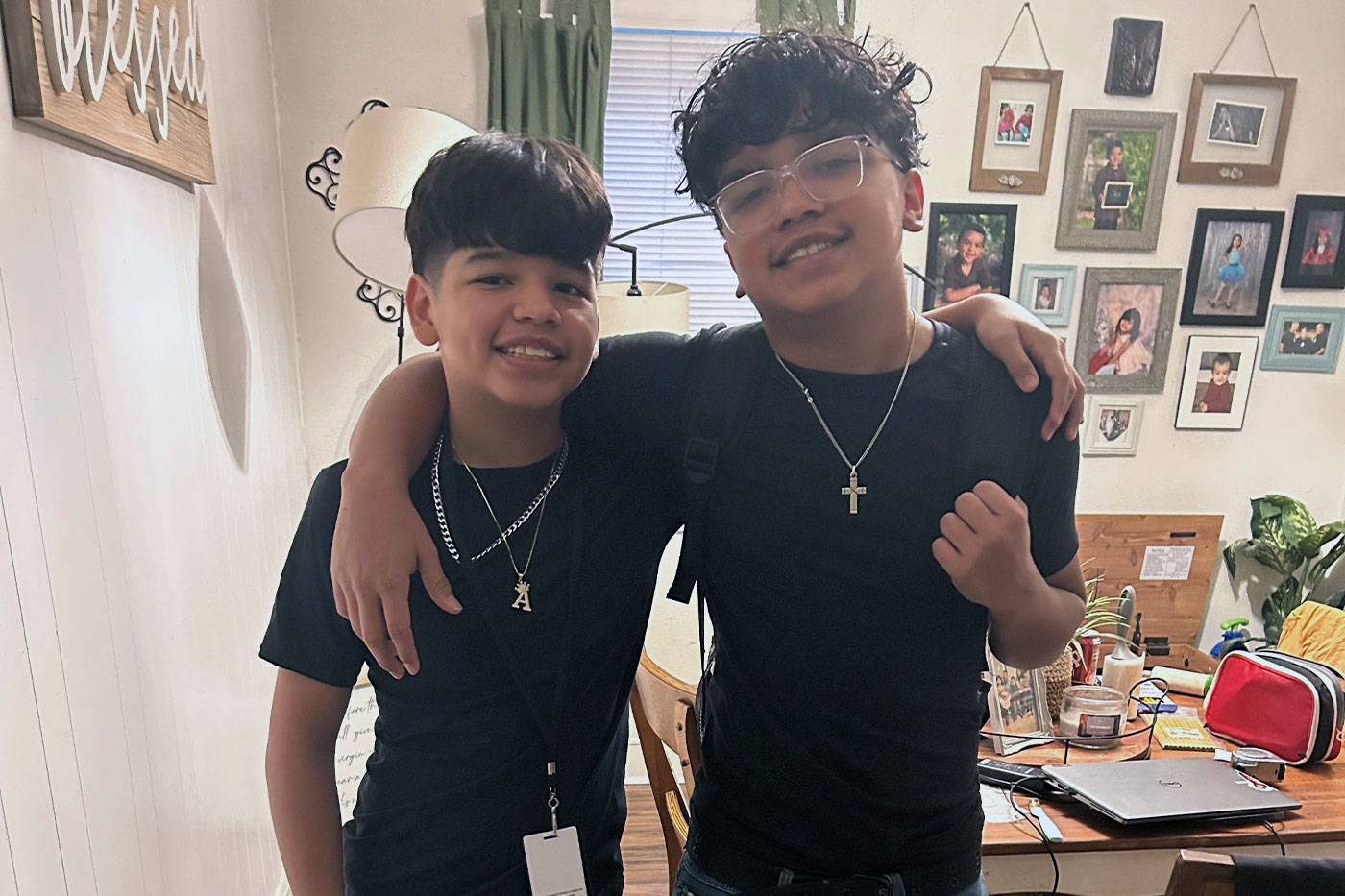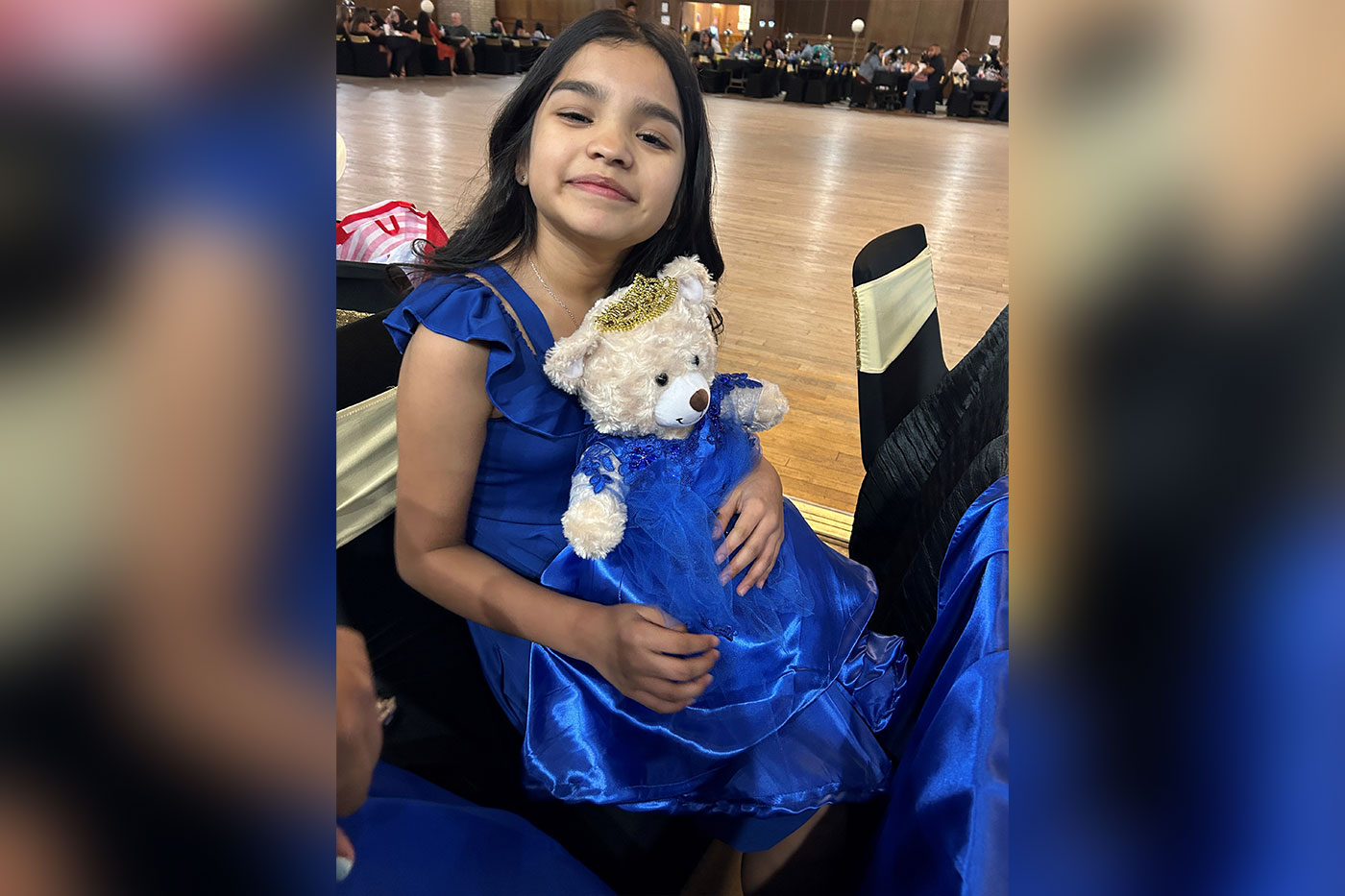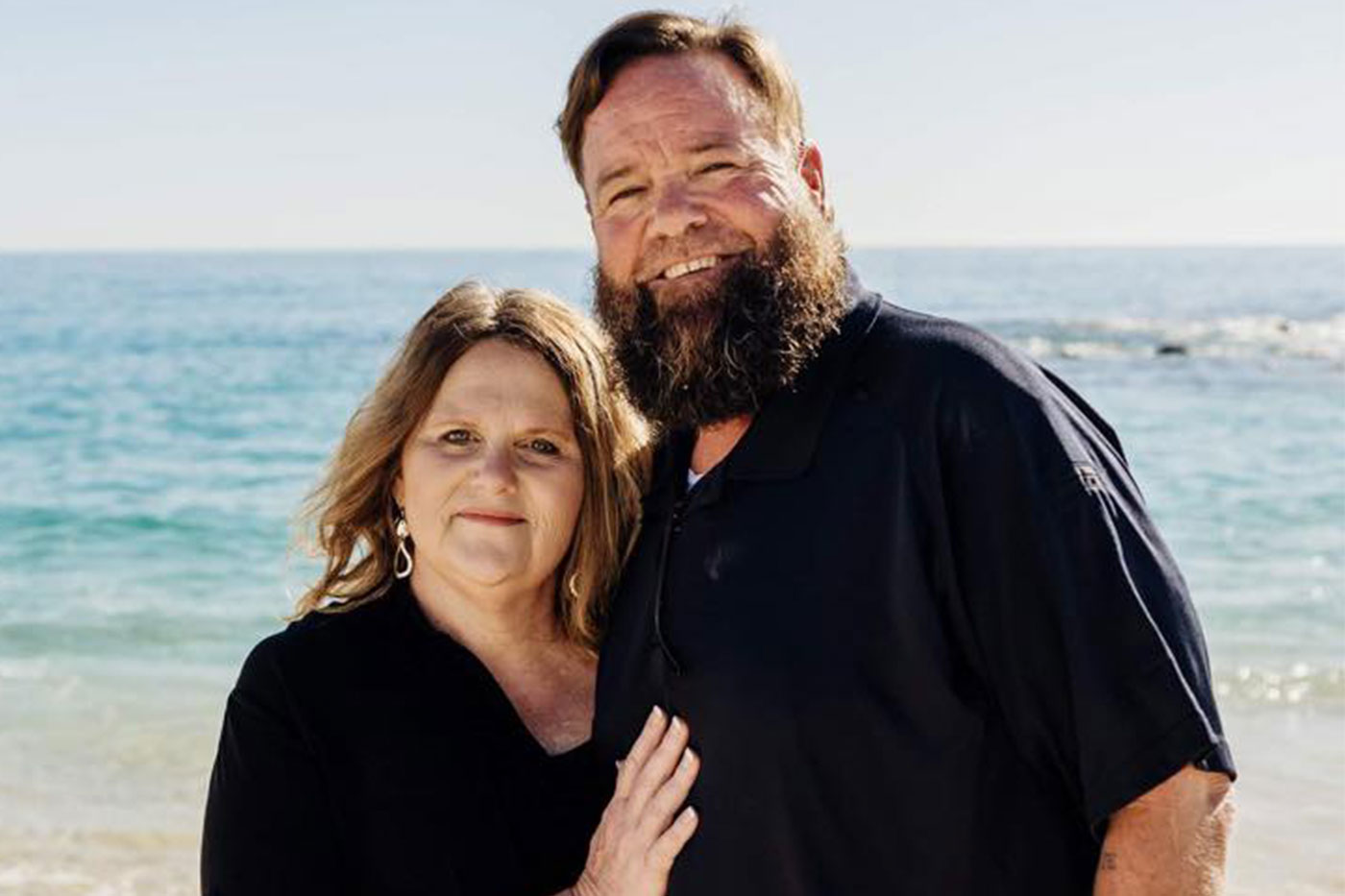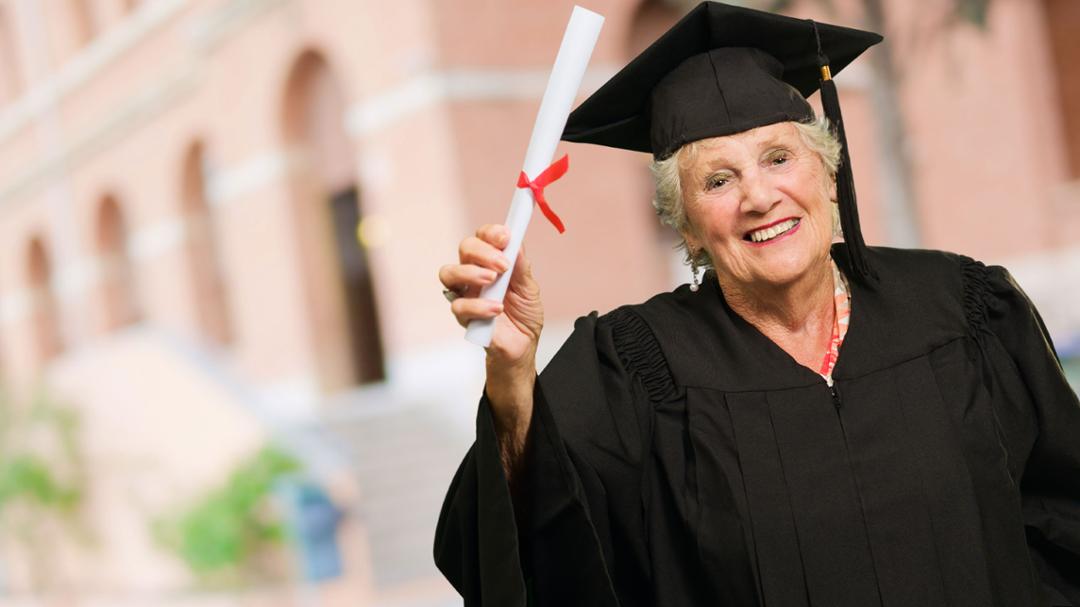Adults who didn’t finish high school are earning a GED or diploma through the grant-funded partnership.
Victoria Delacruz did not complete high school because she was a young mom, and, at the time, it was hard for her to go to school and focus. Throughout the years not finishing school was always her biggest regret.
Now Victoria has completed her GED – for free – through Texas Tech K-12’s Adult Learning Program. The grant-funded plan is a partnership between Texas Tech University’s fully online school and the U.S. Department of Education through the Texas Workforce Commission (TWC). The free program gives adult students the choice between earning a GED or a high school diploma.
Victoria was just beginning her junior year when she had her son, who is now a freshman in high school – the same school she dropped out of in 2010. At the time, Victoria questioned why even be in school when she was already making adult decisions – albeit admittedly poor ones. She decided since she had a child at home, she really didn’t have time for school even though the school was working to accommodate her needs.
“It was a ridiculous decision because I had a school that was working with me,” Victoria said. “They were also working with a daycare in town that my son could attend, so I really had so many options to stay in school, but I still chose not to.”

Assistant Principal and Grant Director Rachel Draper has heard similar stories over and over from the students enrolling in the program. She says many of the students who come to pre-test are brilliant, and she wonders why in the world they didn’t complete high school.
“Then they all have these interesting stories about why they didn’t finish,” Rachel said. “And to get plugged back in and complete that, these students can add so much greatness to our society if they have the job they need.”
Funding Education
Texas Tech K-12 received $1.8M from the education department and TWC to implement the grant in June 2022. Initially set to run in one-year increments, the length of the grant has been extended through June 2025 with funds potentially available through June 2027.
The process begins with an application and a staff review of high school transcripts. Students move to the pre-test, a state requirement. Rachel notes the GED path is a much shorter way to the achievement than the diploma -- which involves more projects, assignments, tests and studying -- but both are doable depending on the student’s situation. Rachel and the advisers can suggest which program might be best for a student, depending on transcripts and other factors, but ultimately the student decides what they can handle or how quickly they want to complete.
The grant offers vouchers for the four required GED modules – math, science, social studies and English – as well as a voucher to cover one re-take if the student doesn’t pass all four the first time. For diploma seekers, the grant covers the tuition and fees for the high school courses necessary to complete the diploma requirements. If a student is particularly motivated, the grant does allow for supplying them a computer, a helpful assist for many students who can’t afford to buy one; however, they do need access to internet. There also is an option for diploma seekers to switch to the GED program if need be. Both options are fully online and self-paced, and dedicated program teachers work with these students.
The Best Path
Victoria was one of those students who switched from the diploma program to the GED. As much as Victoria wanted that diploma, too much life had happened in the meantime for her to finish that way.
On the path to finding the Texas Tech K-12 GED program, she got married and now has three children, a 12-year-old boy and a 9-year-old girl along with her high schooler. After she had her second child, she was ready to get her diploma. Unfortunately, she also got scammed into a fake diploma program which broke her heart and her budget. Victoria says being young and knowing nothing about accreditation, her husband paid for her to go through a school she saw advertised on signs in the Dallas area. After turning in all the schoolwork, they said, “Here's your diploma.” Thinking she had one in hand, she didn’t figure out the scam until she applied to a college that didn’t accept it.
“I was devastated because I had put money and effort into that when I could've done something else,” Victoria said, her voice giving away the lingering hurt. “It was really devastating.”
That’s when Victoria started searching online with terms like “free GED” and “free adult diploma.” She came across Texas Tech K-12’s link listing all the things that were needed with the application to apply for the program. She sent in her application along with the requested blurb and everything about her situation. It was Rachel who called, conducted an interview, listened to her story and approved her for the program.
Victoria was also working full-time, assisting a teacher in a special needs classroom. She had good intentions and high hopes when she started the high school diploma program. But coming home after working at the school all day and doing her own schoolwork at night was tough on her. She powered through that for about six months, but she says maybe it was only three and it just felt like six. Rachel knew Victoria was struggling.
“Victoria is a perfect model of how our program can work for students,” Rachel said. “After several months, she realized that reaching that goal was taking longer than she expected. Instead of giving up on her goal and not responding to our efforts, she and I met and discussed other options. She and I agreed that the GED would allow her to still meet her goals. Victoria didn't hesitate. She started studying for her GED and passed all the tests. I still have the email she sent me the day she got her results, and the subject line was ‘I DID IT!’”


Giving and Receiving Hope
Victoria is still hard on herself because she could have finished high school but chose not to. She said as a woman, one should at least have a diploma because the only jobs she found that didn’t ask for it are fast food restaurants or maybe retail – nothing that's really going to help provide for a family.
Not only that, but people wanting to go on to higher education, Victoria says they can’t even think about it because they don't even have a diploma to further their education. That was a difficult thing for her to cope with because, she said, after you're done raising your children, it's like, “OK, what do I do? What do I want to accomplish?” You're at a standstill because it feels like you failed at the one thing you could have finished back then. It’s been tough. But in the Texas Tech K-12 GED program she found hope and accomplishment.
“I feel extremely blessed, and I am so thankful that this grant opportunity was given to this school,” Victoria said. “And the people that they put in place who work this program – they are amazing individuals – and I think it's a God thing, because for so many years I'm thinking, ‘How am I going to get this?’ I looked, and Texas Tech got the grant in 2022, and I found it in 2023. That's amazing. That's a blessing.”
Rachel says helping adults find hope and finishing a goal they haven’t been able to complete is not just a job; it has become a mission to her and the staff. Developing relationships with these students and helping them get resolution is beyond rewarding.
“At a staff meeting, one of my teachers just started crying and talking about one of the students that she's been meeting with,” Rachel said. “We sort of all agreed we feel like we've been called to this ministry, helping these adults just have hope.”

The path is sometimes challenging for the staff because they really can't put adult learners in one category; there are so many different scenarios of the reasons they dropped out and didn't complete high school. Rachel said the situations that have always challenged them are still there. A student might start out very strong, they’re motivated, they have all these ambitions, but then two months in, they have to take care of their mom who’s dying or their internet gets cut off. They have not been able to break those cycles of low-income status – that “poverty” mentality still exists. And the students all know that. And they want something better. But the advisers, teachers and other staff help them fight through the challenges.
Rachel has high praise for those who have helped build the program. Advisers Taylor Silvas and Brittany Perez are the face of the program and interact directly with students. They started at the beginning of the program and have poured themselves into it. Keetha Chadwick, an assistant principal, has been integral working behind the scenes to ensure the school is in compliance with the grant protocols. She also has developed processes making it easy to track the progress of their learners and streamline their efforts to keep them engaged and successful. Teachers Brooke Bicknell, Paige Tamplin and Andrew Pacheco, she says, are the real deals.
“They're true educators because they have a heart for people learning and growing,” Rachel said. “They were great selections. They've been in this with me, so it's been cool to see them evolve, too. They've had to change their expectations of some of these adult learners. You have to have a heart for where they are. You have to show grace; you cannot have the same rules you would for a 17-year-old still living under the wing of their mom and dad.”
Encouraging Success
In the two years since receiving the TWC grant, Rachel says they’ve been able to improve the program to help more students in better ways. Building a solid accountability system includes scheduling many more check-ins, which, she says, were lacking in frequency when they started the program. What she calls ‘direct contact’ hours require students to meet with teachers. Not only is it good for them academically, but also emotionally, to have that face-to-face meeting to go over a concept, but it’s a chance for them to encourage those adult learners, too. The teachers send a lot of those kinds of emails.
“We send nudges like, ‘We notice you haven’t been active for the past month. What can we do to help you get back on track?’ And many of them will respond and say, ‘I know; I’m so sorry,’” Rachel explained. “You can tell they don’t want to be behind or out of touch.
“I'm telling you, if you could sit where I sit and have these conversations, and I see their faces, too, in pre-testing – their self-esteem a lot of times is extremely low because that whole thing of not completing something is heavy on them. I just want to reach out and grab them and say, ‘Don't live with this guilt anymore. Come on, get back on track.’ I don't want them to live with still feeling like they still didn't complete another thing.”
Victoria, of course, received that encouragement from Rachel and others many times. She said the hardest part is just showing up, but once you start putting the work into it, the process is not as intimidating. She convinced herself, more than once, she was not smart enough to take the tests. People would tell her, “You are smart. You can do it,” and to just put effort into it. And if she didn’t pass, she could take it again. But she did pass each of the four tests on the first try.
If Rachel had known the younger Victoria, she would have given her a message she now wants to get out to 18-year-olds and other high school students.
“Don’t stop! Because when you become an adult, it’s so hard to go back and you’re trying to juggle family and everything, to finish that diploma,” she said emphatically. That’s obviously why TWC is investing so much money in these programs, because they know these residents of Texas need their education. They need to be getting it at the ground level and educating our adults who missed out.”
Now that Victoria has completed her GED, she doesn’t want to rush into what might be next, even though she’s had many people close to her suggest teaching. She feels like the sky's the limit and she can go for anything. She’s looked at different options, but she’s just delighting in the feeling of such a big accomplishment. And she wants to urge others to finally complete what they haven’t.
“I feel like if I could tell more people, I definitely would,” Victoria said. “I would 100% recommend it, just because I am so thankful to Texas Tech – actually my two aunts, my mother’s younger sisters, are going to Texas Tech. I love Texas Tech because I wouldn't have had the opportunity if it wasn't for this school and all those amazing people. I would have dreams about being in high school; it was so heavy on my mind. It was such a regret people just don't understand. It was such a burden. I feel so fortunate and so blessed that I came across it.”

